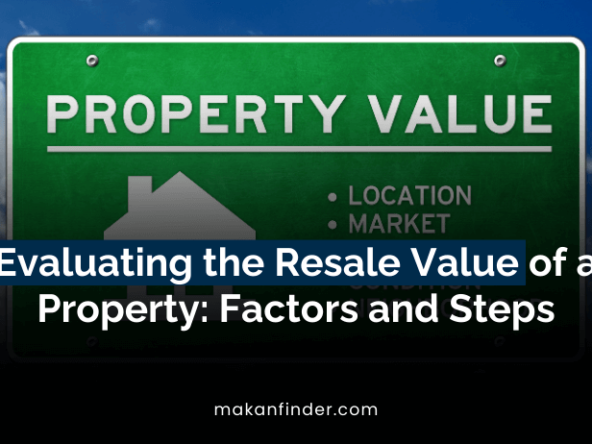Selling property in Pakistan
The process of selling property in Pakistan is generally similar across different housing societies, with some minor requirements specific to individual developers. One common question people ask is how to transfer property ownership in Pakistan. The transfer process usually takes place at the office of the city’s land development authority. In the case of projects developed by private and registered developers, the transfer occurs at their respective offices.
Here are several important considerations to keep in mind when selling property in Pakistan. We will explore each of them in detail.
1. Preliminary Research and Finding an Agent
Before listing your house for sale, it is advisable to conduct independent market research to determine the property’s value. Relying solely on the agent’s assessment may not give you an accurate picture. Understanding the market value helps you set an appropriate price, benefiting both the buyer and seller. Make the effort to cross-check the market rates from various sources to ensure accuracy. Although this step requires significant effort, it pays off in the long run.
Once you have a clear understanding of the market value, it’s time to find a reliable real estate agent. While you may be tempted to sell your property without an agent, working with the right professional is crucial for securing a profitable deal. Additionally, involving an agent is one of the quickest ways to sell property in Pakistan. The agent will handle the complex processes on your behalf, saving you time and effort.
2. Agent's Commission
Real estate agents typically work on a commission basis, which is usually around one percent. In some cases, agents may be willing to negotiate the commission percentage based on the deal’s closure rate, but this is uncommon. It is essential to have a discussion with the agent to finalize the commission percentage and determine when it will be paid before proceeding further.
In most instances, the commission is paid when you receive the full payment for the property. However, there are situations where both parties agree that a certain percentage of the commission will be paid once the buyer makes the initial deposit (known as bayana). To avoid any complications, ensure that all these terms are thoroughly discussed and agreed upon in advance.
3. Token Money
The process of selling a house involves several stages. Once you find a potential buyer, they will provide token money. This amount serves as an indication of the buyer’s intent to purchase the property and reserves it for them. After receiving the token money, you can provide the buyer with a photocopy of the property’s original documents for verification purposes.
Here’s how it works: If the land falls under the jurisdiction of the land development authority, you need to submit an application requesting a visit to verify the documents for the buyer. The land authority officials will then schedule a specific day for you and the buyer to visit. On that day, in your presence, the buyer will have the opportunity to examine the records that authenticate the property.
If you are unfamiliar with the terms “Token” and “Bayana,” you can refer to this blog, which provides detailed information on both of these terms.
4. Initial Deposit
When selling property in Pakistan, it is important to consider the initial deposit. Once the documents are verified, the buyer pays a certain amount of money as an initial deposit, commonly known as bayana. Typically, this deposit is 25% of the property’s selling price. At this stage, a stamp paper is also signed, outlining the agreed-upon conditions. The stamp paper specifies the timeframe for the buyer to make the remaining payment and defines the penalties if they fail to do so.
If you decide to retract the property sale after receiving the bayana, you are legally obligated to return double the amount as a penalty. This condition is also mentioned on the stamp paper.
5. No-Demand Certificate (NDC)
Obtaining a No-Demand Certificate (NDC) is the next crucial step in our guide on how to sell property in Pakistan. This certificate is essential for property transfer and can be obtained from either the private housing society’s office or the city’s land development authority, depending on the property’s location.
The NDC certifies that you have no outstanding dues. It also includes information about the applicable taxes for both the buyer and the seller, along with the transfer fee and stamp duty. There is a specific charge associated with applying for an NDC, and the fee may vary depending on the developer. Once you receive the NDC, remember to provide a copy to the buyer.
6. Taxes
As a property seller, it is crucial to have a thorough understanding of property taxes in Pakistan. Sellers are required to pay the Capital Gain Tax (CGT), which amounts to 1% of the property value for tax filers and 2% for non-filers. The CGT is applicable when properties are sold within two years of their purchase date. This tax payment must be submitted to the housing society’s office or the land development authority. On the other hand, the buyer is responsible for paying the following charges before the property can be transferred:
- Transfer fee
- Stamp duty
- CVT (Capital Value Tax)
- TMA (Town Municipal Administration) Tax
- Transfer Letter
Once this process is complete, the property is no longer under your ownership. The pay order is usually transferred to your account within a couple of days. It is advisable to monitor your bank account during this time. Remember, maintaining constant vigilance is crucial when dealing with property transactions. Unfortunately, real estate scams are not uncommon. However, we can provide assistance in navigating such situations.
By following this step-by-step guide, you will have a comprehensive understanding of how to sell property in Pakistan and be better prepared for a successful transaction.





